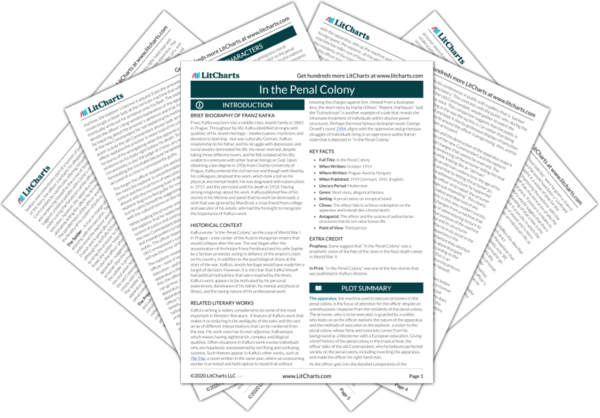A man in charge of watching the prisoner and assisting with the execution. The soldier is unable to understand the explorer and the officer as they converse in French and is generally uninterested in the execution itself, although he dutifully follows the officer’s commands and helps to strap the prisoner to the apparatus. After the prisoner is freed, the soldier helps him gather his clothes and is reluctant to save the officer after he straps himself to the apparatus—suggesting he has more in common with the prisoner than the higher ranking official. Throughout the story, the solider is primarily a mute presence who finally speaks near the end when he gives the explorer a brief explanation about the old Commandant’s grave and tries to escape the penal colony with the prisoner, only to be thwarted by the explorer. The soldier’s attempt to flee suggest that even though the apparatus and the officer are gone, life is still undesirable in the penal colony.
